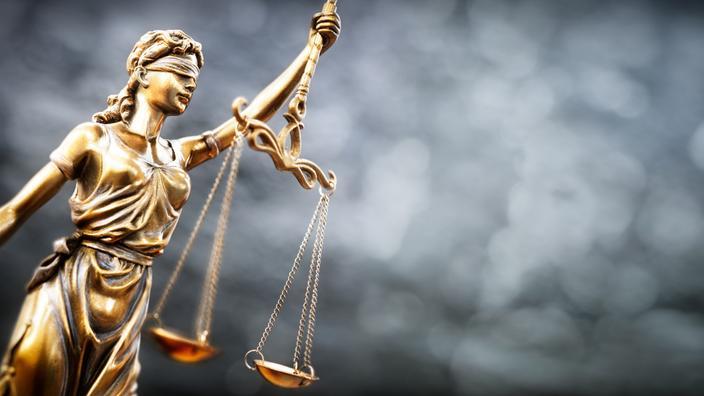Jacques-Henri Robert is Emeritus Professor at the University of Paris-Panthéon-Assas, Co-director of the
Criminal Law review
(ed. LexisNexis), expert of the Club des juristes.
LE FIGARO. – On the move this Thursday, March 31 in Charente-Maritime, the head of state reacted to the indictment of a farmer who killed a burglar who entered his home. “I am opposed to self-defense. So that's very clear and it's intractable because otherwise it becomes the Wild West. And I do not want a country where weapons proliferate and where it is considered that it is up to the citizens to defend themselves,” he said. What does the law say about this? Do citizens have the right to defend themselves in the event of an attack? In what framework?
If Emmanuel Macron is really
"opposed to self-defense"
, he will have to ask Parliament to repeal articles 122-5 and 122-6 of the Penal Code which enshrine this institution as old as civilization.
Paragraph 1 of the first of these texts reads as follows:
"A person is not criminally liable who, in the face of an unjustified attack on himself or others, performs, at the same time, an act ordered by the necessity of the self-defence of itself or of others, unless there is a disproportion between the means of defense employed and the seriousness of the attack”
.
Paragraph 2, which was very hotly debated during the examination of the draft Penal Code, attenuates the scope of the principle in the case of defense of property and not of life or
"Is not criminally liable the person who, to interrupt the execution of a crime or misdemeanor against property, performs an act of defence,
other than intentional homicide
, when this act is strictly necessary for the aim pursued when the means employed are proportionate to the seriousness of the offence
.
The wounds inflicted on a thief can therefore be justified, and even his homicide if the person attacked did not want to kill.
If it is prosecuted before the criminal courts, the litigant who alleges self-defense must provide proof of the attack and the proportion of the means used to repel it.
However, it is exempted from it in the two cases listed in article 122-6 of the Penal Code: “
1° To repel, at night, entry by breaking and entering, violence or trickery into an inhabited place;
2° To defend oneself against the authors of theft or looting carried out with violence”.
It is then up to the public prosecutor to demonstrate that the defender exceeded the permission of the law.
The first case covered by article 122-6 was that of the attacked Charente farmer.
To understand the words of Emmanuel Macron, they must be interpreted as applying only to murder committed voluntarily in self-defense.
Jacques-Henri Robert
Our legislation complies with the Convention for the Protection of Human Rights and Fundamental Freedoms, Article 2 of which, relating to the protection of "everyone's right to life", contains a paragraph 2 as follows:
"Death shall not be deemed to be inflicted in violation of this article if it results from the use of force absolutely necessary: (a) for the defense of any person against unlawful violence…”
.
The abolition of self-defence would therefore not be a reasonable undertaking.
To understand Emmanuel Macron's words, they must be interpreted as applying only to murder committed voluntarily in self-defense.
They also target the use of firearms;
but their detention cannot be completely prohibited and it is already closely monitored thanks to the Internal Security Code.
Politically, Emmanuel Macron responds to Éric Zemmour who, on the contrary, proposed the introduction into our legislation of the
"excusable right of defense"
, which would be, according to him, a
"right of response" from
which the police would benefit, but also "
tradesmen and robbed citizens
”.
From a legal point of view, can the fact that the Charente farmer is in the presence of his child at the time of the burglary be taken into account to assess “self-defence”?
He may have feared for the life of this child, a vulnerable person, which justifies the defense of others, as provided for in article 122-5.
In any case, he benefits from the presumption of self-defence laid down by article 122-6, 1° relating to night break-ins.
The assessment of self-defense seems difficult. Is there or not a legal vagueness on this subject?
The careful drafting of the texts of the Penal Code is the result of centuries of judicial experience and can hardly be improved upon.
But it is true that it leaves to the judges a great power of appreciation that the criminal division endeavors usefully to regulate.
Indeed, before appearing before the Assize Court, accused persons can lodge an appeal before the Court of Cassation: it very carefully justifies its judgments, or it dismisses the defenders, like any other accused , before the Assize Court, or that it censures their indictment.
One cannot tax its jurisprudence of “fuzzy”, but it remains a human work which does not concern an exact science.
The Penal Code does not deserve to be amended.
The severity or leniency in the framework of self-defense depends only on the jurisdictions.
Jacques-Henri Robert
And above all, the decisions of the assize courts, based on the intimate and secret conviction of the popular jurors who only answer "yes" or "no" to the questions put to them, are unpredictable.
In the departments which suffer the most from violence, the juries are severe with the criminals and correlatively lenient with their victims who defend themselves.
In 2018, the Assize Court of the Alpes-Maritimes sentenced to five years in prison suspended the jeweler of Nice who had made the headlines, for willful violence with a weapon having caused death without intention to give it, while excluding self-defense. Since then, has the law evolved?
The jeweler was convicted because, while his property was indeed attacked, the use of a firearm against an already fugitive burglar was deemed disproportionate, although it was not motivated by the intention of to kill.
And he only suffered a correctional sentence and not a criminal one, which allowed the granting of a reprieve.
The law was interpreted correctly and there was no reason to change it as a result of this case.
In your opinion, is the principle of self-defense too strictly framed in France?
The Penal Code does not deserve to be amended.
The severity or leniency in the framework of self-defense depends only on the jurisdictions.
It is true that, when it is seized of judgments of indictment, the criminal chamber does not lean towards laxity but in this case, it does not have the last word, which belongs to the courts of assizes.








